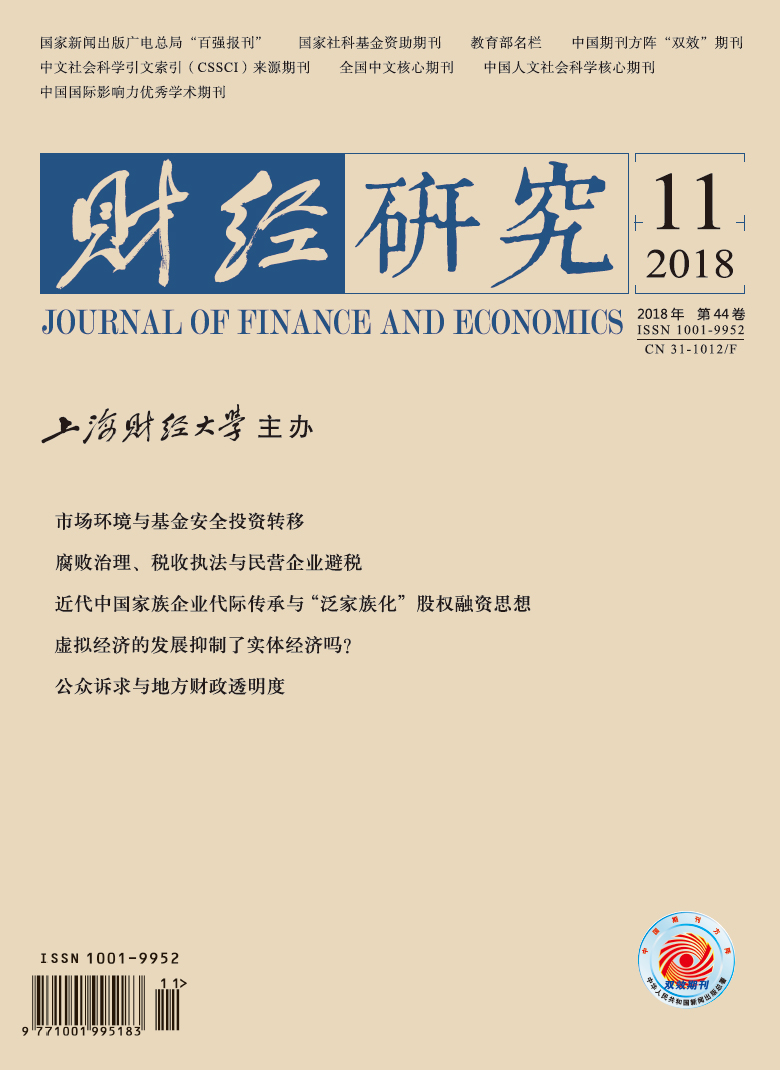It has been forty years since the Chinese reform and opening-up. The founders of family business at that time have stepped into their twilight, anxiously inspecting and evaluating their qualified successors. Of late, the transition of family business has become one of the big hurdles on the way of sustainable development of Chinese private economy. The existing literature considers equity financing as an institutional arrangement, which is conducive to alleviating the conflicts between stakeholders and optimizing the structure of corporate governance during the family business transitional process. However, many problems remain mystery to us. What are the features of the equity financing of Chinese family business? How does its mechanism function in ensuring the transition of family business? This article has a systematic investigation on the origin, the mechanism, and the system design of the thoughts of modern pan-familizational equity financing, especially the role it plays in the intergenerational transition of family business from the perspective of history of economic thoughts. Our research draws the following conclusions. First of all, although the thoughts of equity financing stem from western countries, the thoughts of pan-familizational equity financing are products of the fusion of western economic thoughts with Chinese traditional culture. Second, facing so much impediments in the intergenerational transition of family business under the background of Chinese culture, the thoughts of pan-familizational equity financing, typically the family integration, differentiated governance hierarchy, family networking, undoubtedly clear the way to certain extent. Third, since the " rotten meat in the pot” dividend distribution system, the " differentiated mode of association” equity ownership structure and the " quasi consanguine ties” equity governance system are built to accommodate traditional Chinese family business, the pan-familizational equity financing, as a combination and development of equity financing and microeconomic theories, could significantly lower transaction cost in intergenerational transition. In a word, the main contributions of our paper are as following. First, it sketches a panorama of thoughts of modern Chinese pan-familizational equity financing, including its origin, mechanism and system design. Second, it provides a new path of constructing the institutions of the intergenerational transition of Chinese family business. Third, it gives insights into how recent family business to reduce potential risks, boost the efficiency of intergenerational transition and enrich Chinese traditional governance culture. It has a great influence on introducing brilliant achievements of traditional governance culture to the world and winning the international discourse power on Chinese culture.
 / Journals / Journal of Finance and Economics
/ Journals / Journal of Finance and EconomicsJournal of Finance and Economics
LiuYuanchun, Editor-in-Chief
ZhengChunrong, Vice Executive Editor-in-Chief
YaoLan BaoXiaohua HuangJun, Vice Editor-in-Chief
The Intergenerational Transition of Family Business and the Thoughts of Pan-Familizational Equity Financing in Modern China
Journal of Finance and Economics Vol. 44, Issue 11, pp. 61 - 73 (2018) DOI:10.16538/j.cnki.jfe.2018.11.005
Summary
References
Summary
[1] Cheng L, Zhou Y. Thoughts of modern Chinese family enterprise troubled debt restructuring institutions and its contemporary significance[J]. Journal of Finance and Economics, 2017, (7): 70-82. (In Chinese)
[2] Du X C. Confucian ethics and modern enterprise system in China[J]. Journal of Finance and Economics, 2005, (1): 72-80. (In Chinese)
[3] Li J, Chen C M. Research on the validity of succession of enterprises social capital in family firm——Under the angle of view of structure of network[J]. Economic Management, 2010, (9): 85-91. (In Chinese)
[4] Gao X W. Governance structure, family ethic and pan-family ethic of family corporation in modern China[J]. Journal of Southwest University (Social Sciences Edition), 2008, (3): 174-180. (In Chinese)
[5] Hu M S. The primary research on financing ways of RongJia’s enterprises in modern times[J]. Journal of Beijing Institute of Technology (Social Sciences Edition), 2007, (8): 82-84. (In Chinese)
[6] Wu C M. Characteristics of Chinese national capital[J]. Economic Research Journal, 1956, (6): 111-137. (In Chinese)
[7] Yang G S. Psychology and behavior of Chinese people: Localization research[M]. China Renmin University Press, 2004. (In Chinese)
[8] Yang Y. On the share equity financing preference of modern earlier enterprises in Late-Qing dynasty: Analysis of theory and influence factors[J]. Science· Economy· Society, 2006, (2): 37-40. (In Chinese)
[9] Yan Y X. “Chaxugeju” and the notion of hierarchy in Chinese culture[J]. Sociological Studies, 2006, (4): 201-213. (In Chinese)
[10] Yang Z J. The research of the relationship between family property Inheritance mode and modern enterprises[J]. Researches in Chinese Economic History, 2017, (2): 129-138. (In Chinese)
[11] Zhu H J, Yu L W, Wang H. Pan-familization or patriarchy? ——Management mode selection of Chinese private enterprise and analysis of economic consequences based on Youngor and Matsuoka[J]. Management World, 2007, (2): 107-119. (In Chinese)
[12] Zou J W. On family characteristics of modern Chinese private stock enterprise[J]. Researches in Chinese Economic History, 2004, (1): 18-27. (In Chinese)
[13] Zhou S C, Fan Y. Social capital, governance structure and agency problem of family business[J]. ZheJiang Social Sciences, 2008, (12): 7-13. (In Chinese)
[14] Zhu Y G. From an analysis on the debts of China merchants steamship company to see the capital market in modern China[J]. Social Sciences, 2012, (10): 144-153. (In Chinese)
[15] Zhang Z M. Fixed interest and corporate capital raising in modern Chinese corporate institutions[J]. Reform, 1998, (3): 118-126. (In Chinese)
[16] Handler W C. Succession in family firms: A mutual role adjustment between entrepreneur and next generation family members[J]. Entrepreneurship Theory and Practice, 1990, 15(1): 37-51.
[17] La Porta R, Lopez-De-Silanes F, Shleifer A, et al. Legal determinants of external finance[J]. The Journal of Finance, 1997, 52(3): 1131-1150.
[18] Zellweger T M, Kellermanns F W, Chrisman J, et al. Family control and family firm valuation by family CEOs: The importance of intentions for transgenerational control[J]. Organization Science, 2012, 23(3): 851-868.
Cite this article
Cheng Lin, Zhou Yan. The Intergenerational Transition of Family Business and the Thoughts of Pan-Familizational Equity Financing in Modern China[J]. Journal of Finance and Economics, 2018, 44(11): 61-73.
Export Citations as:
For
ISSUE COVER
RELATED ARTICLES




 9045
9045  17040
17040

